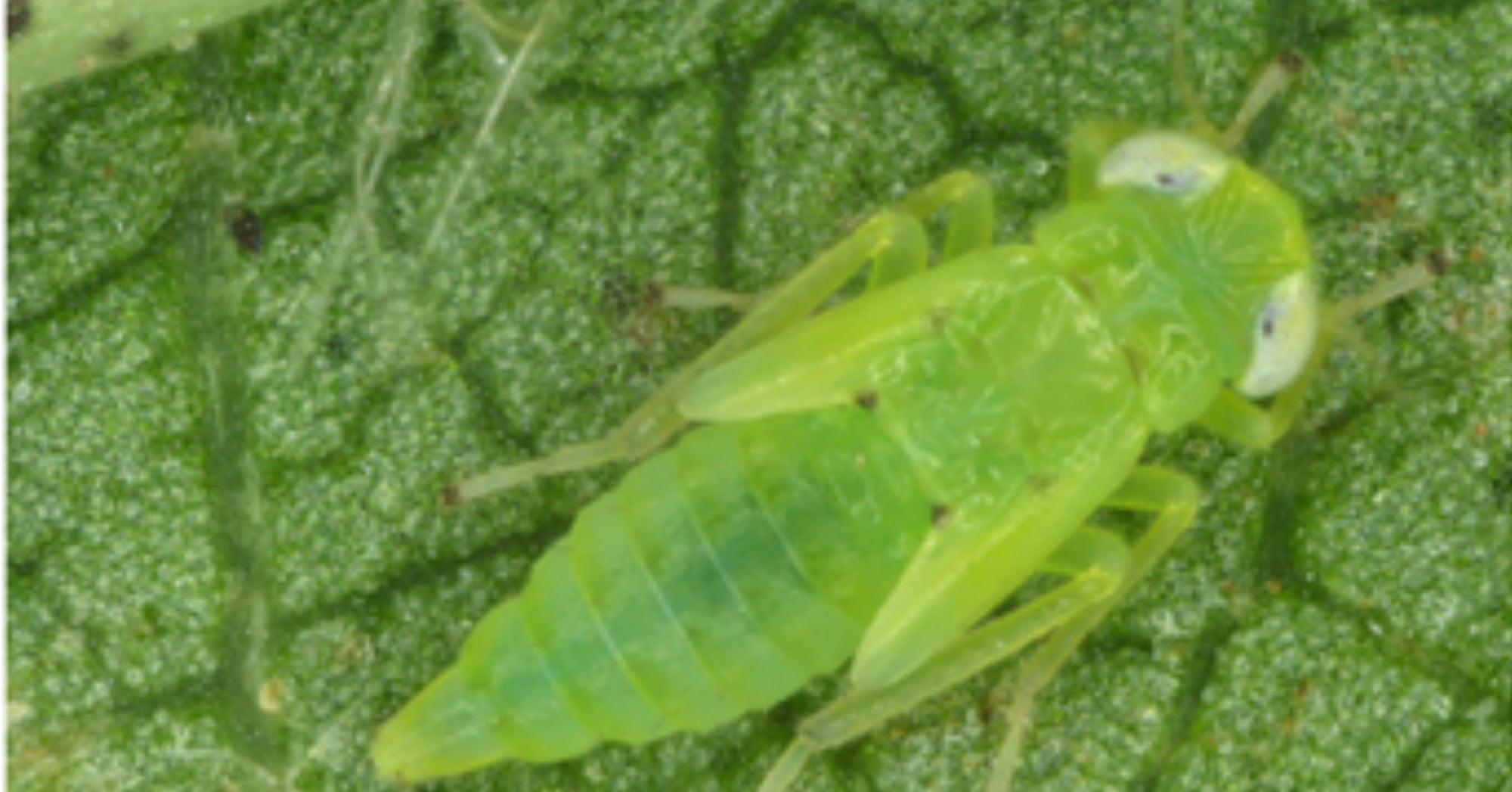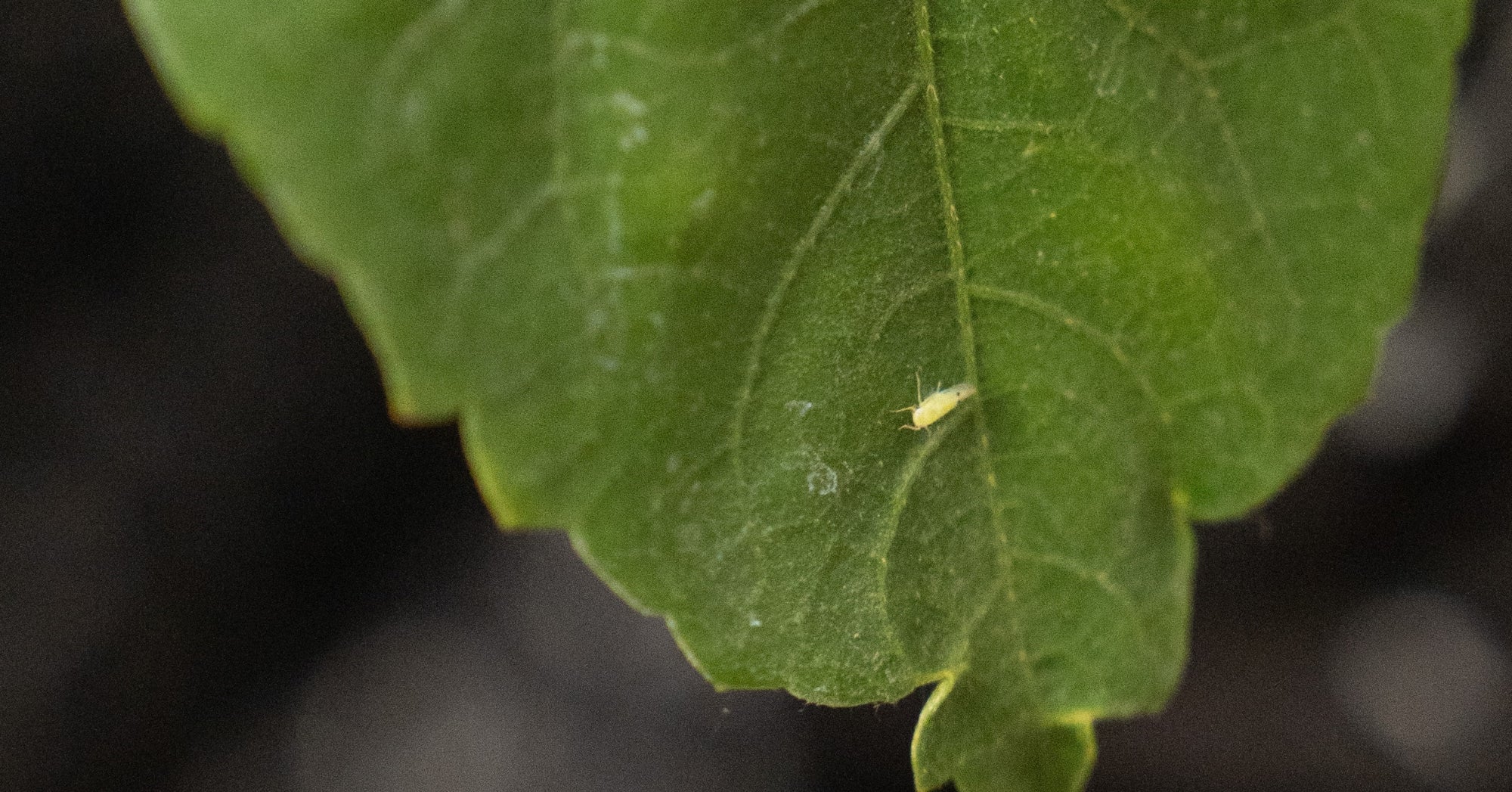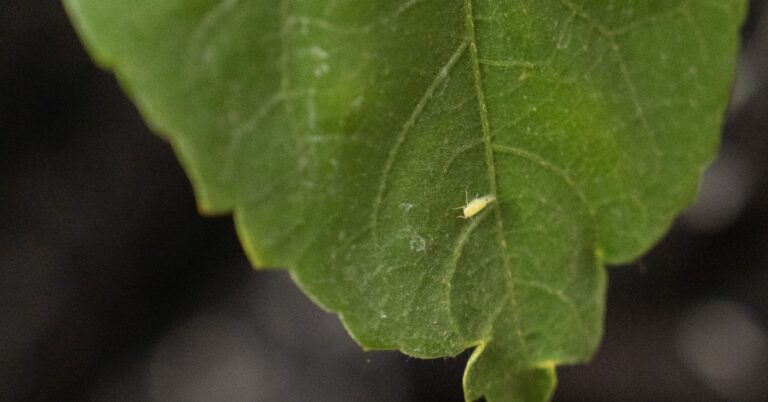The Texas Department of Agriculture has enacted an emergency statewide quarantine to stop the spread of the invasive two-spotted cotton leafhopper, also known as the cotton jassid, a pest posing a grave threat to Texas’ multi-billion-dollar cotton industry.
“Texas cotton farmers are the backbone of our economy and our communities,” said Texas Agriculture Commissioner Sid Miller. “Texas grows 40% of the cotton grown in the U.S., making this pest a major threat to our supply. I won’t let a threat like the cotton jassid harm our farmers, ranchers, nurseries, or landscapes. We’re taking aggressive steps to stop this pest in its tracks.”
Originally from Asia, the cotton jassid (Amrasca biguttula) has spread across much of the southeastern United States. The pest feeds on a wide range of plants including cotton, hibiscus, okra, eggplant, and sunflowers, causing damage known as “hopperburn” — yellowing, curling, and stunted growth that can result in up to 50 percent crop loss, according to TDA.
The insect was first detected in Texas last month on hibiscus plants shipped from Costa Farms Nursery in Florida, prompting TDA to act. The emergency quarantine, effective October 2, restricts the movement of live plants that can host the pest from Alabama, Florida, Georgia, Louisiana, Mississippi, South Carolina, North Carolina, and Tennessee into Texas.

Emergency orders, and enforcement
TDA has issued a series of emergency measures to contain the pest. The department mandates the immediate detection, quarantine, and destruction of infested plants within the Malvaceae family—such as cotton, roselle, okra, and hibiscus — as well as other host species including calendula, cucumber, squash, and sunflower. “Any nursery stock shipments coming into Texas without any phytosanitary or nursery inspection documentation must be rejected at the road station and diverted back to the original state,” the agency said.
Vehicles transporting unapproved regulated products are also being targeted. According to TDA, “trucks, trailers, or refrigerated haulers transporting regulated products into Texas will be pulled off the road, impounded, and subject to forfeiture under state law.” The agency has expanded statewide inspections, with inspectors working alongside USDA and Texas A&M AgriLife Extension to monitor markets, nurseries, and retail centers.
To boost public awareness, the department is distributing new outreach materials to retailers, landscapers, and the general public. “Fact sheets and identification guides are being shared with cotton producers and industry partners to enhance awareness, detection, and reporting,” TDA said.
Under Chapter 71 of the Texas Agriculture Code, TDA has the authority to establish quarantines when an imminent threat exists. So far, TDA and USDA inspectors have conducted over 400 inspections statewide, with several positive detections confirmed.
“If you’re a grower, a retailer, or a consumer, we need you on the lookout,” Miller said. “Don’t move infested plants, report anything suspicious, and know that your Department of Agriculture is hitting the ground running to keep this pest from taking root in our state. Just like the New World Screwworm, TDA is fighting it aggressively, quickly, and with every resource at our disposal.”
He urged producers and industry partners to “stay alert and patient. We’ll defeat this pest, but it will require all of us being on the lookout.”
The quarantine will remain in effect “until rescinded or modified,” according to TDA. Retailers or nurseries that violate the order could face fines, destruction of infested plants, or criminal penalties.


The emergency comes as Texas cotton growers report one of their most promising harvests in years, buoyed by timely rains and above-average yields, according to Texas A&M AgriLife Extension specialists. “This is good news for the industry, as gins, suppliers, warehouses and the entire cotton industry have endured tough economic conditions due to low cotton lint volume the last few years,” said Ken Legé, Ph.D., a cotton specialist with Texas A&M AgriLife Extension in Lubbock.
Still, experts warn that the invasive jassid could threaten that momentum. The pest’s ability to spread rapidly across multiple plant hosts raises concerns not only for cotton, but also for horticultural crops and nursery trade statewide.
If you suspect a cotton jassid infestation, contact TDA at [email protected] or (512) 463-7660.



:max_bytes(150000):strip_icc()/turkeys-ars-usda-photo-4e39a75271024f29be022ff9976b4440.jpg)
:max_bytes(150000):strip_icc()/Markets-10-Corn-up-wheat-up-5-a41d988ceef74aedbcbc093b791d7bdc.jpeg)




:max_bytes(150000):strip_icc()/IMG_1591-2048x1365-362687ca596f4814967abffff2b4be2c.jpg)
:max_bytes(150000):strip_icc()/SuccessfulFarmingShareImage-8fed6410b43147a19ed5ea1e3243227f.png)
